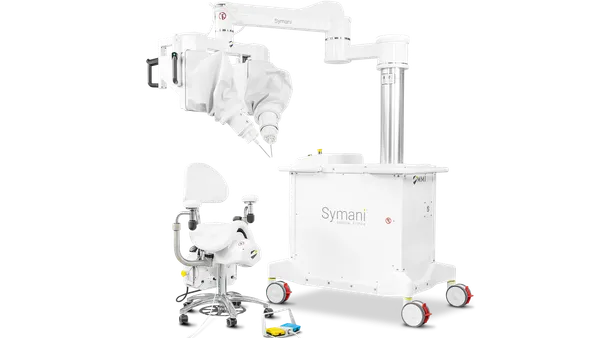Dive Brief:
- A liquid biopsy test by cancer diagnostics company Guardant Health detected advanced non-small cell lung cancer at a similar rate to traditional tissue-based testing, according to results presented at the American Association for Cancer Research annual meeting this week.
- In a clinical trial, the test identified cancer biomarkers in about 27% of patients compared to a conventional biopsy, which identified them in approximately 21%.
- The test, called Guardant360, analyzes cell-free tumor DNA in the blood to look for eight recommended mutations that can indicate the presence of cancer.
Dive Insight:
Guardant Health’s liquid biopsy worked slightly better than a standard biopsy test for advanced non-small cell lung cancer when compared head to head.
In a clinical trial funded by the company, 282 patients received both a traditional biopsy and the Guardant360 test, which both look for seven recommended predictive biomarkers and one prognostic biomarker. Investigators found the Guardant Health test detected these biomarkers in 77 patients, or about 27%, while tissue-based genotyping identified them in 60, or about 21%.
A flurry of companies are working on bringing liquid biopsies for cancer to the market. If effective, these tests could offer advantages to standard tests. For one, tissue-based biopsies are invasive and sometimes painful for patients. Plus, it can be difficult to get enough tissue needed for testing, and the turnaround time for results can be as long as 30 days.
The turnaround time for the Guardant test was also shorter than a standard biopsy, at an average of nine days versus 15 days.
"We know that about 30 percent of patients with newly diagnosed advanced non-small cell lung cancer have therapeutically targetable genomic alterations that make them eligible for targeted therapies," said senior author Vassiliki Papadimitrakopoulou, an oncologist at the University of Texas MD Anderson Cancer Center, in a press call earlier this week.
"Identifying these patients is important, as the response rate to the appropriately identified targeted therapy is higher than the response rate to first-time chemotherapy or immune checkpoint inhibitor therapy," she said.
The Guardant test was also able to identify the same mutations in the EGFR, ALK, BRAF and ROS1 genes as tissue-based testing. Importantly, these mutations can all be targeted with available, FDA-approved drugs.
Currently, Guardant360 is sold in 30 countries, including in the U.S. as a laboratory-developed test. It’s not yet approved by FDA.
The agency has so far only approved one blood-based cancer test, which detects mutations in the EGFR gene in non-small cell lung cancer patients. Such mutations are present in about 10% to 20% of these patients. The test, marketed by Roche, was approved in 2016. A regulatory greenlight from FDA would substantially expand the use of Guardant Health’s test, which is able to detect more mutations.










